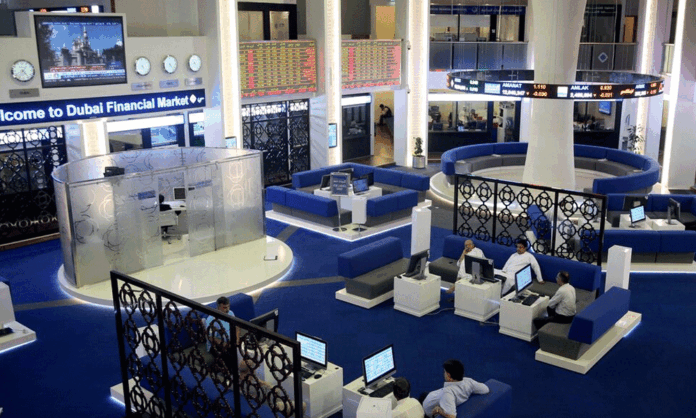Most Gulf markets ended lower on Wednesday as investors weighed U.S. trade policy developments and signs that tariffs may be fuelling inflation, while awaiting cues on the Federal Reserve’s interest rate policy.
U.S. consumer prices rose at the fastest pace in five months in June, raising concerns that tariffs were beginning to pressure inflation.
On Tuesday, President Donald Trump said letters notifying smaller countries of their tariff rates would be sent soon.
Saudi Arabia’s benchmark index (.TASI) dropped 0.5%, hit by a 0.4% fall in Al Rajhi Bank (1120.SE). Oil behemoth Saudi Aramco (2222.SE) fell 0.7%.
About 217.4 million shares changed hands, compared with an average of 314.3 million shares over the previous 10 sessions.
Oil prices — a catalyst for the Gulf’s financial markets — fell by about 1%, as signs of stronger Chinese crude consumption were outweighed by investor caution about the wider economic impact from U.S. tariffs.
Dubai’s benchmark index (.DFMGI) jumped 1% to 5,974 dirhams, having crossed the mark for the first time in nearly 17.5 years.
Financial stocks led gains with a 3.7% jump in Emirates NBD (ENBD.DU) after concluding 3.9 billion dirhams in syndicated loans for Dubai Metro’s Blue Line Project.
Abu Dhabi index (.FTFADGI) added 0.3%, helped by a 2.6% increase in top lender First Abu Dhabi Bank (FAB.AD).
Strong bank earnings lifted sentiment across both Abu Dhabi and Dubai financials.
Qatar’s stock index (.QSI) inched 0.1% lower.
In the U.S., data on Tuesday showed consumer prices rose 0.3% in June, in line with forecasts, but the largest gain since January. Trump, however, reiterated his call for lower interest rates from the Fed, saying that consumer prices remain low.
Monetary policy in the Gulf tends to mirror the Fed’s moves, given the region’s currency pegs to the U.S. dollar.
Outside the Gulf, Egypt’s blue-chip index (.EGX30), which is trading at a near all-time high, dropped 1%, weighed by a 5.3% slide in tobacco monopoly Eastern Company (EAST.CA).
Powerful airstrikes rocked Damascus on Wednesday, targeting the defense ministry and hitting next to the presidential palace in the Syrian capital.
Egypt’s progress on structural reforms under an $8 billion International Monetary Fund loan agreement has been mixed, the fund said, citing the public sector’s continued dominance of the economy as a problem.




